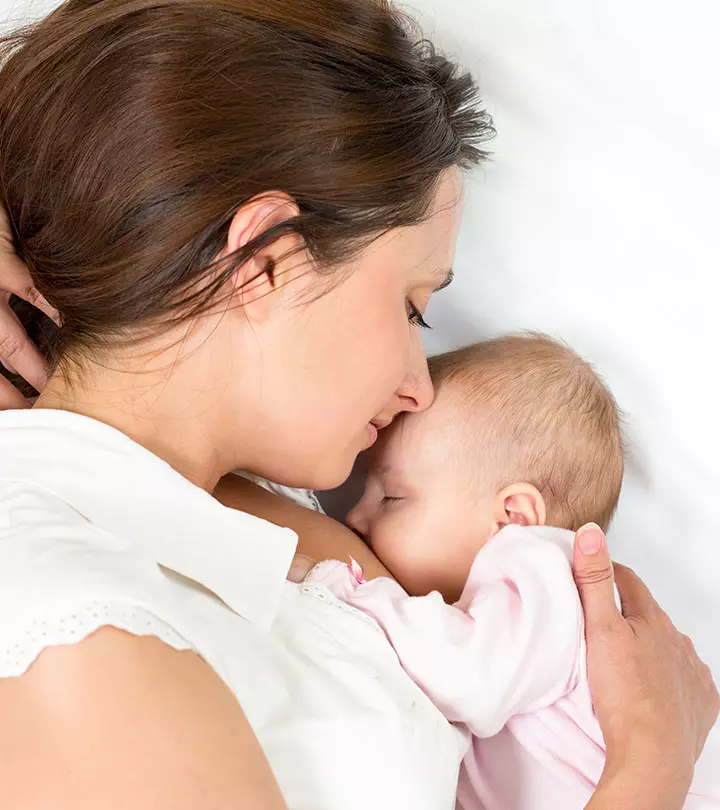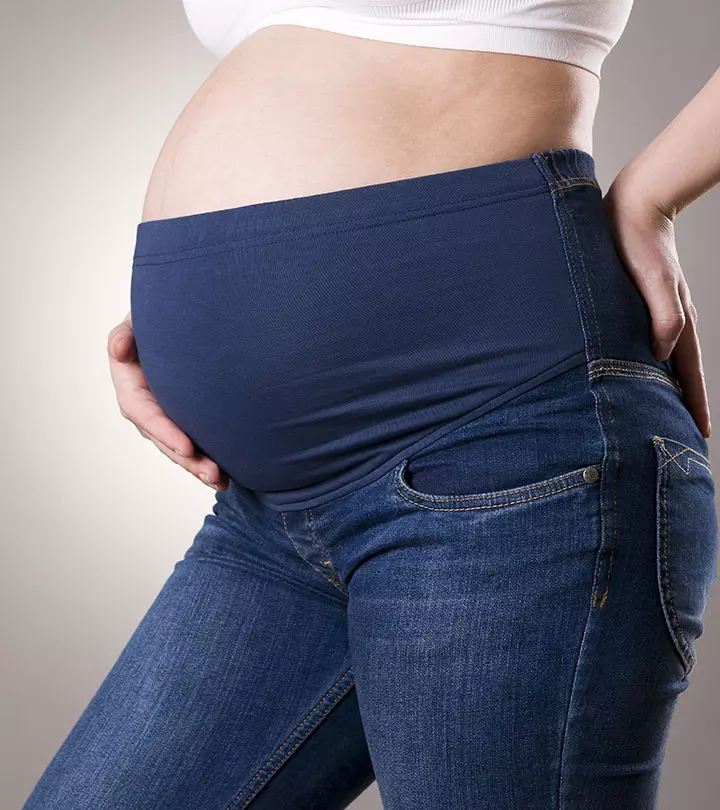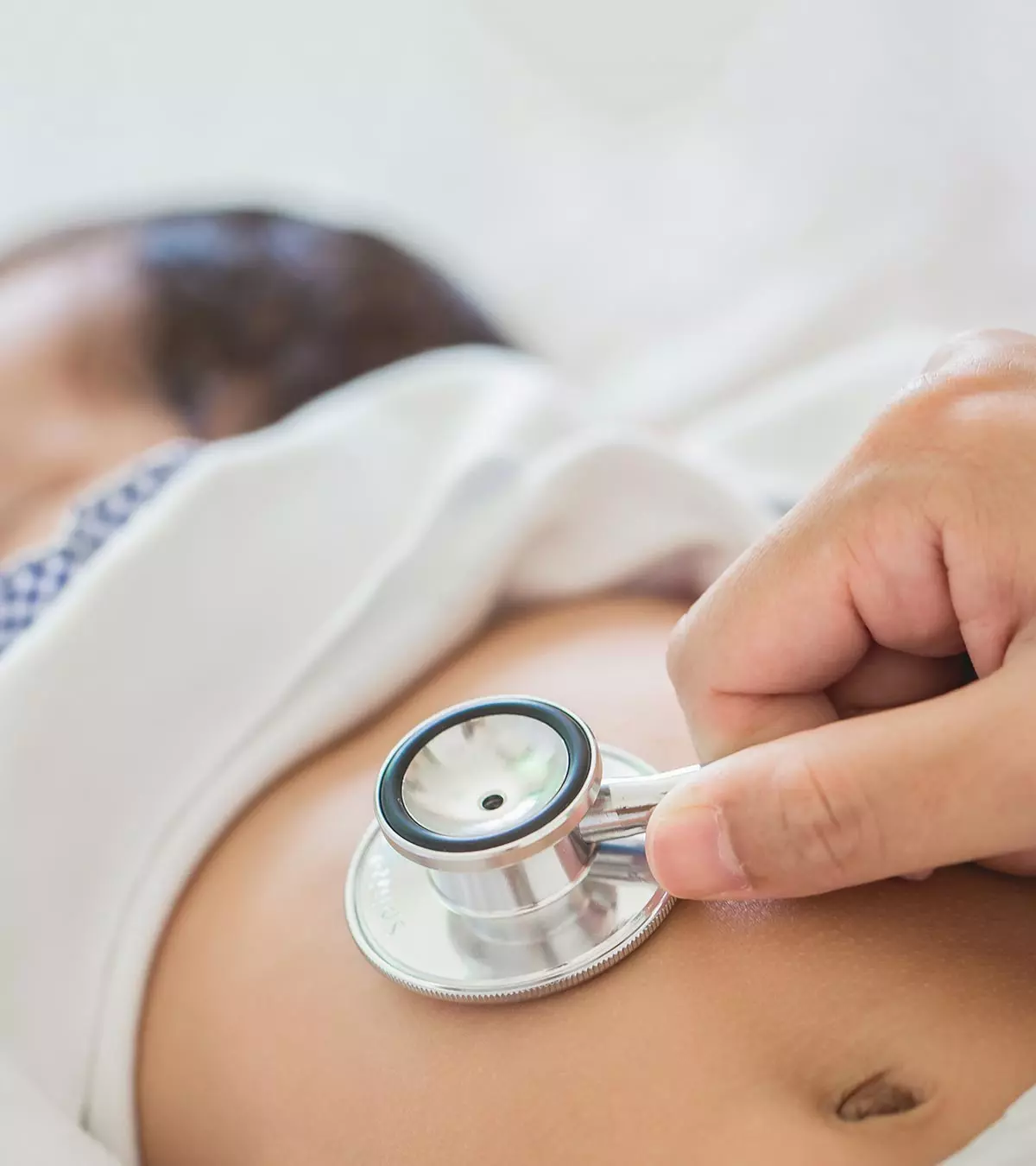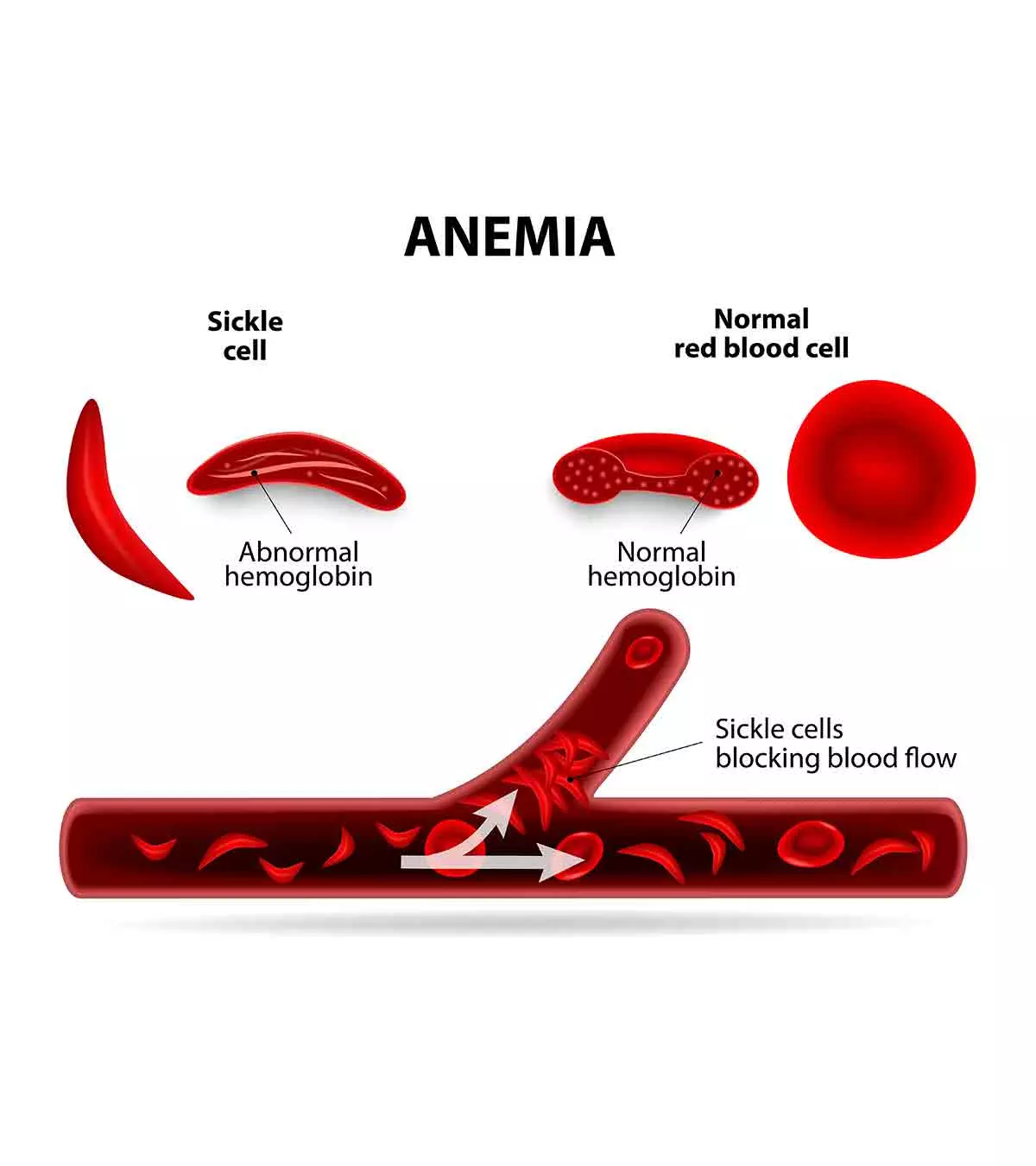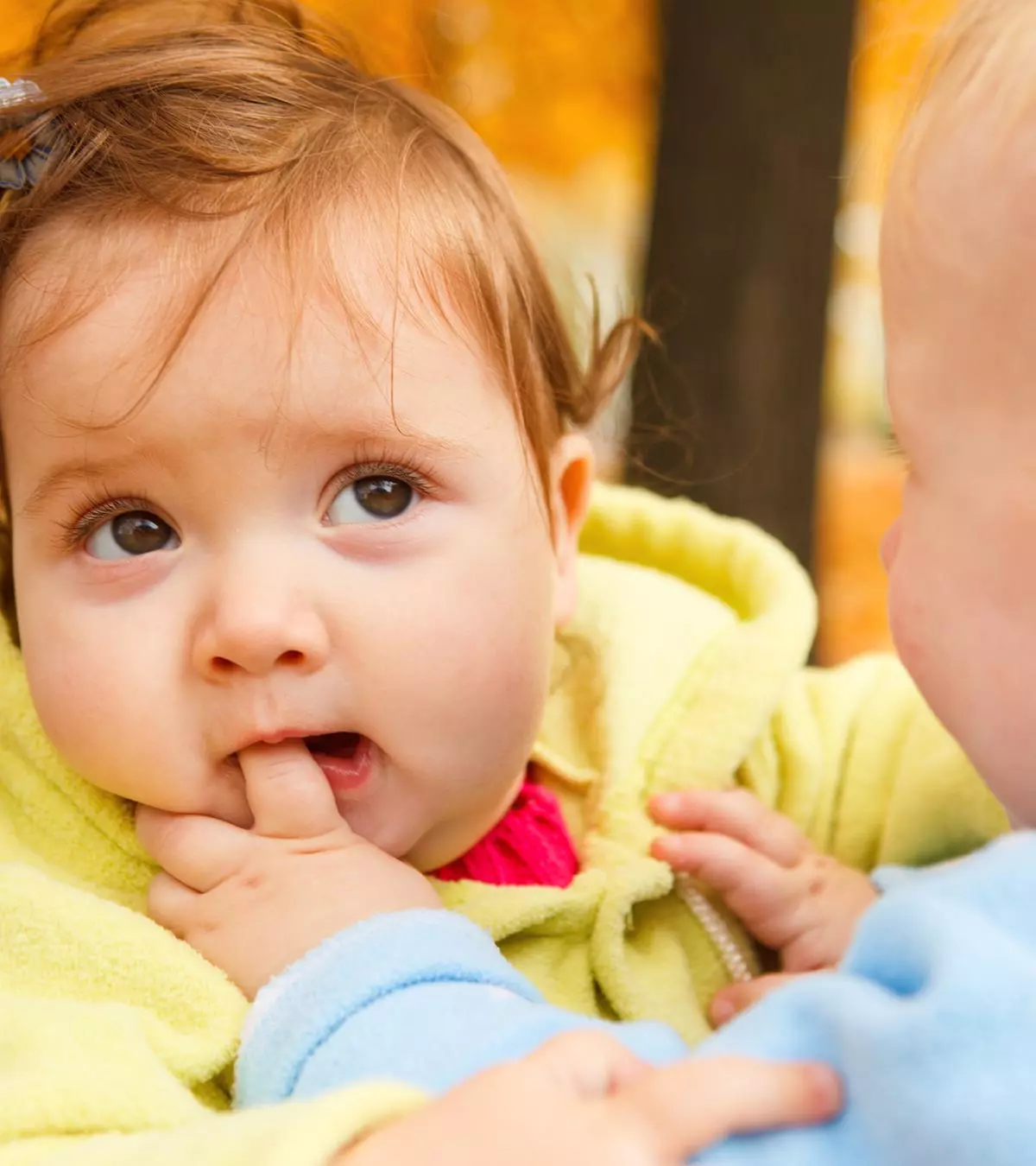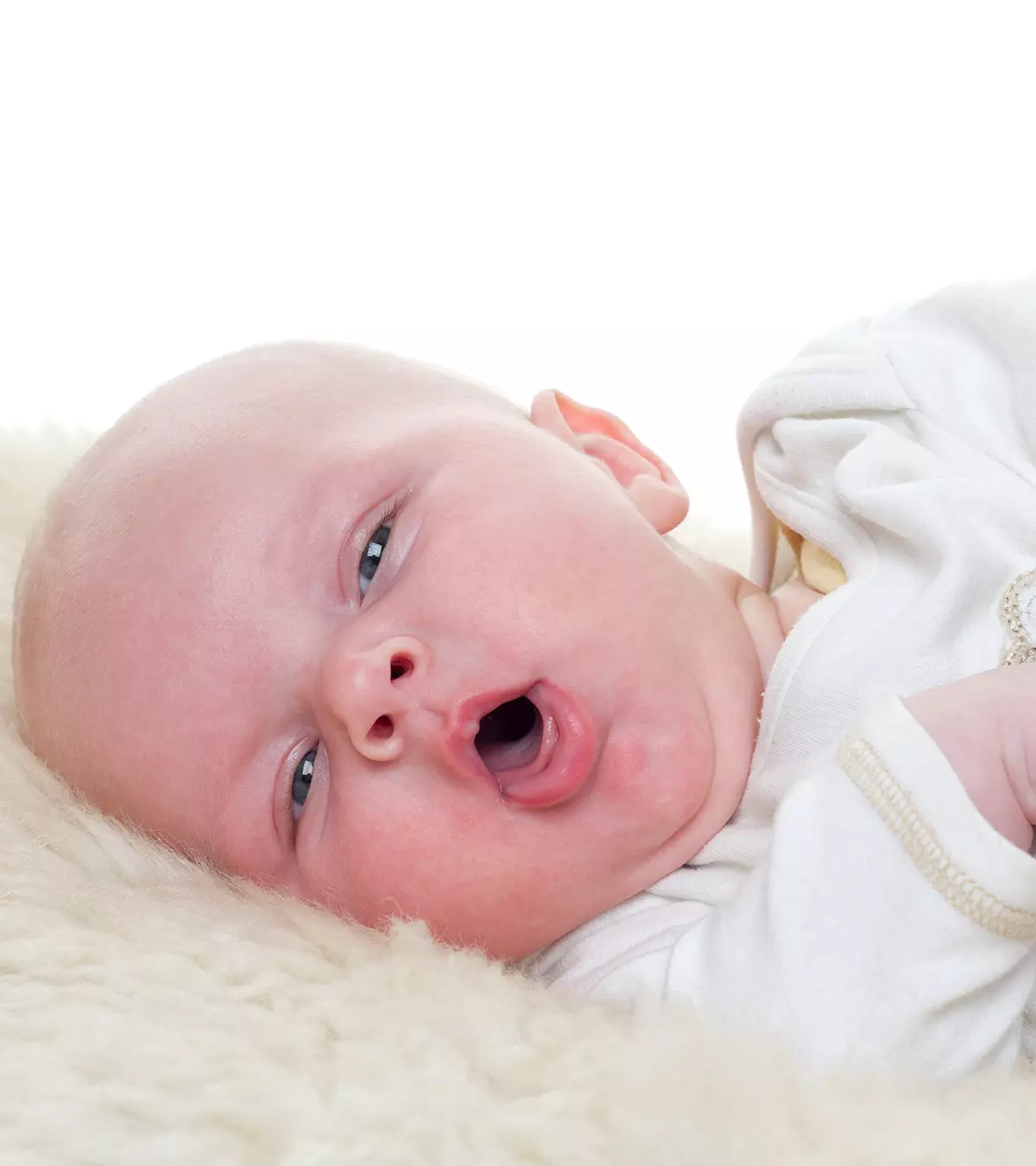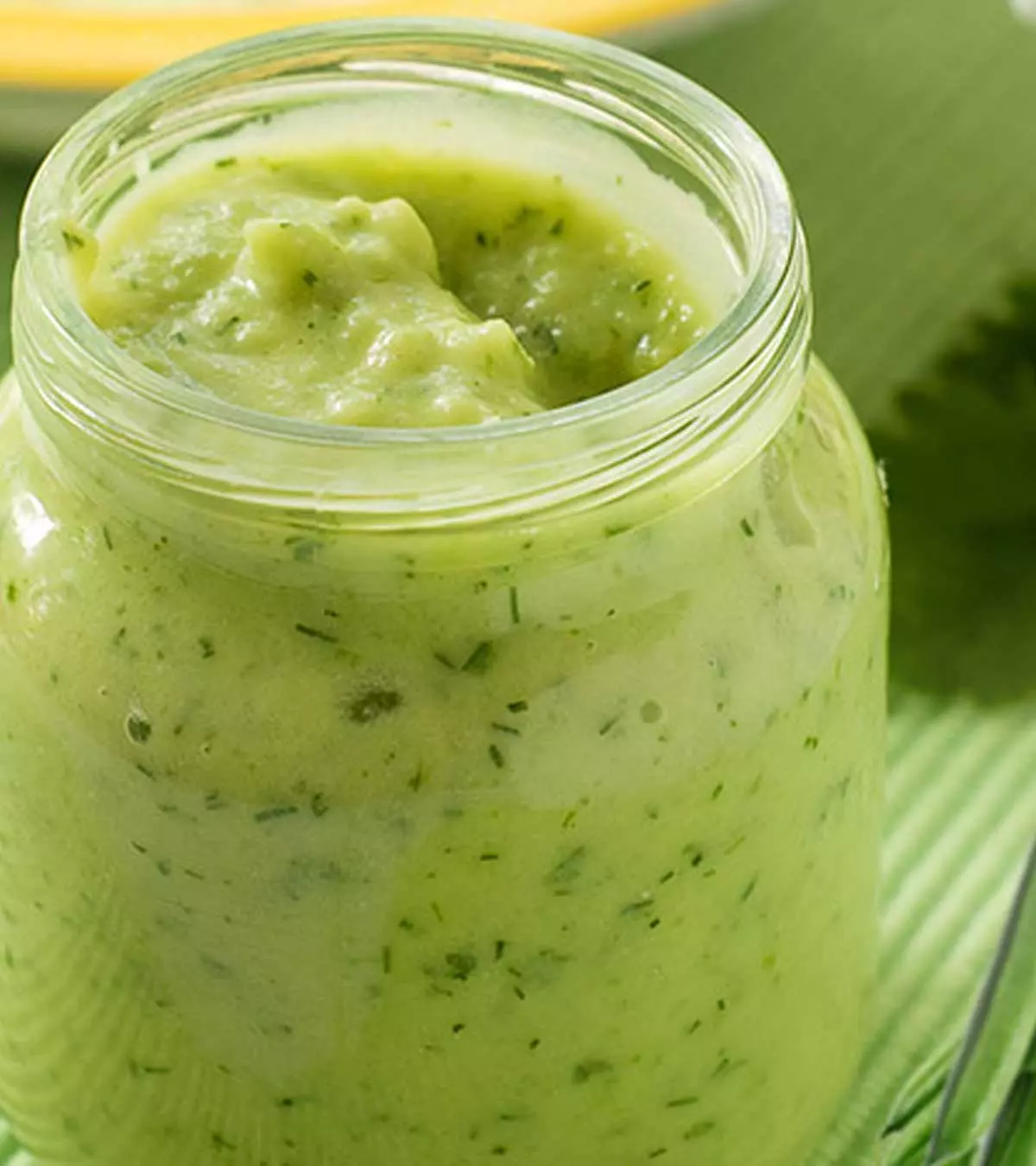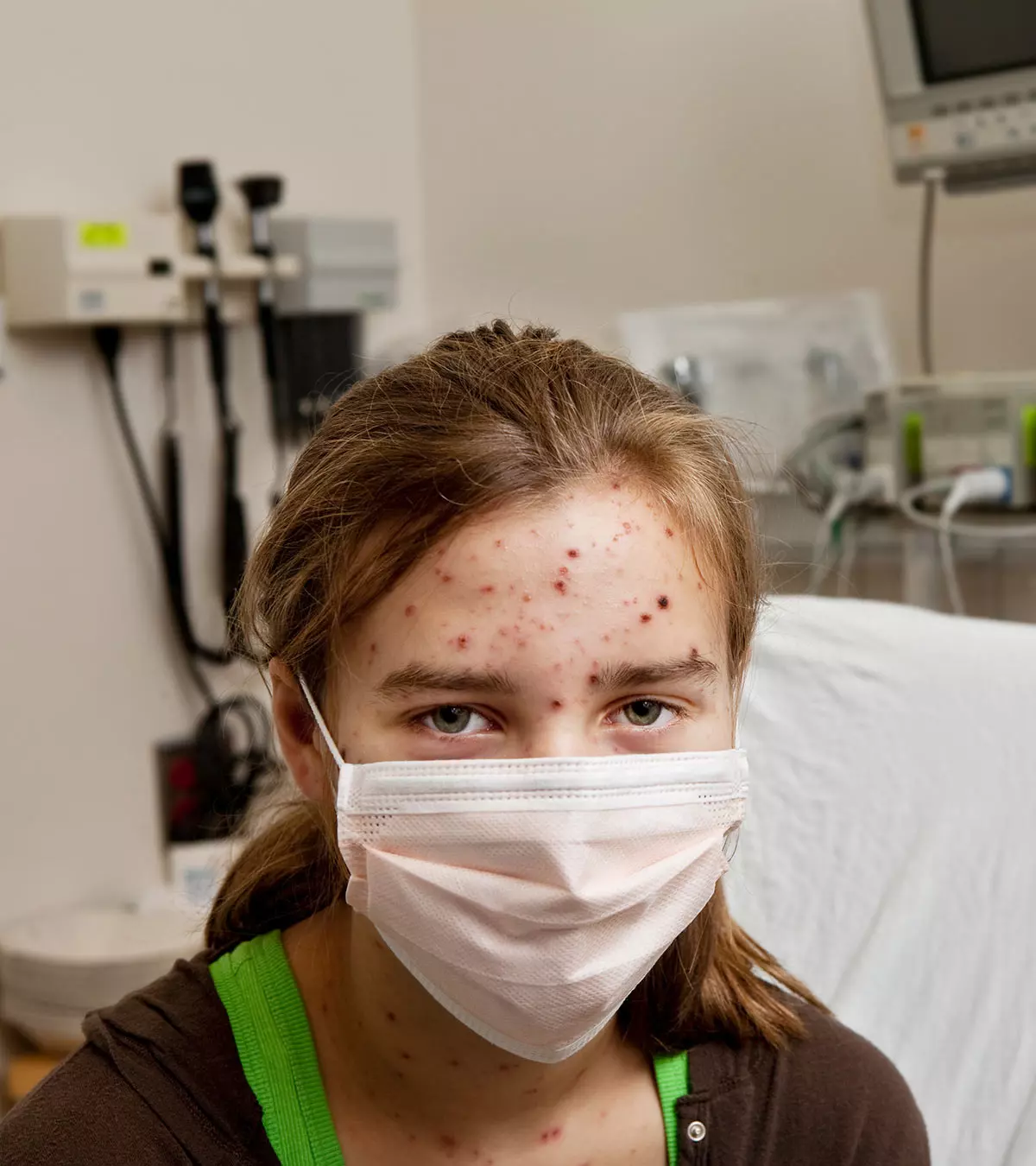

Image: iStock
Chicken Pox or varicella in children is a common infection caused by the varicella-zoster virus (VZV). It is a highly contagious infection that can easily spread from an infected person to others through air droplets or close contact. Children and teens may develop mild symptoms more than adults. Vaccination can effectively help prevent chickenpox in children (1).

It is recommended to seek prompt medical care since taking antiviral medications within the first 24 hours after the onset of skin rashes can help reduce the severity of infection. Read on the causes, signs, diagnosis, treatment, and ways to prevent chickenpox or varicella in children.
Causes Of Chickenpox In Children
VZV is a type of herpesvirus that exclusively affects humans. Initial infection of the virus can be due to (2):
- Direct contact with the rash of an infected person
- Airborne transmission from cough and sneezes of an infected person
After the primary infection, the virus may stay latent in the cranial nerves for years. The reactivation of the virus may result in a painful rash with localized blisters known as herpes zoster or shingles.
The virus can be contagious from two days before the appearance of rashes until the vesicles are healed.
Risk Factors
Children and teens who have never had chickenpox vaccine or chickenpox have a higher risk of contracting the infection. The disease itself or the vaccination can give immunity against the disease.
In rare cases, children may get chickenpox even when they are vaccinated. However, in such cases, the infection can be mild with a few vesicles (fluid-filled sacs) and often without fever. Some may develop chickenpox more than once. However, this is rare.
The risk of contracting chickenpox can be higher among kids or teens with less immunity or those on steroid therapy or chemotherapy (3).
Signs And Symptoms Of Chickenpox In Children
The appearance of itchy vesicles on erythematous (red) skin, primarily on the face and trunk, is the main symptom of chickenpox. The rashes develop 10–21 days after a person contracts VZV, and may last for five to ten days (3).
You may notice the following changes in the chickenpox rash over the course of the disease (4):
- Papules (erupted pink or red bumps) on the skin
- Vesicles which may break and leak fluid
- Crusts over the broken blister
You may notice all the three stages of rashes at the same time as papules continue to erupt for several days.
You may notice the following symptoms one or two days before the appearance of rashes (5):
- Fever
- Headache
- Lack of appetite
- Tiredness
Usually, the disease is mild in healthy kids and teens. However, a few children may develop severe disease with rashes all over the body. You may notice lesions on the throat, eyes, and mucous membranes of the vagina, anus, and urethra in severe cases.
Complications Of Chickenpox In Teens And Children
Although chickenpox is a mild, self-limiting disease, it may result in complications in some children. However, this is rare.
The complications may include (6):
- Dehydration
- Pneumonia
- Bacterial infection of the skin and soft tissues
- Toxic shock syndrome
- Bacterial sepsis
- Encephalitis (inflammation of the brain)
- Reye syndrome (swelling in the brain and liver) in kids and teens who may have taken aspirin during infection
- Reactivation of the virus after primary infection
These complications can be fatal if left untreated. Seek medical attention if you notice any of the conditions listed above.
Reactivation Of Chickenpox Virus
VZV can remain in the nerve cells for years after the initial skin infection. The reactivation of the virus could cause herpes zoster, also known as shingles, with painful localized vesicles.
Although shingles usually occurs in adults, kids may get shingles if they have weakened immunity. The long-term pain in nerves known as postherpetic neuralgia is the most common complication of herpes zoster.
Shingles can also result in the following complications (7):
- Herpes zoster ophthalmicus: A complication involving the eyes and orbit that could often lead to blindness
- Ramsay hunt syndrome or herpes zoster oticus: A complication involving the nerves of the ear that may result in hearing problems
- Pneumonia
Note
: Shingrix and zostavax are vaccines against shingles. However, these are approved for adults who have had chickenpox (8).
Diagnosis Of Chickenpox
Your doctor may diagnose chickenpox by seeing the rashes. Blood tests or culture from lesions might be obtained to confirm the diagnosis, but mostly the diagnosis is made on clinical examination.
Treatment For Chickenpox In Teens and Children
There may not be a need for medical treatment to cure chickenpox in healthy kids and teens. Your doctor may prescribe some medications to reduce itching.
Antivirals are prescribed if your child or teen has an increased risk of developing complications. Antivirals may help to reduce the severity and duration of disease and prevent complications. Generally, antivirals such as aciclovir (Zovirax, Sitavig) or intravenous immune globulin (Privigen) are prescribed (9).
Your child may require hospitalization if the infection is severe or if they develop complications. Antibiotics are given for bacterial infection of the skin and pneumonia. Encephalitis is treated with antiviral medications.
Home Remedies For Chickenpox In Teens And Kids
The following self-care methods can be helpful in managing symptoms if the child has an uncomplicated infection.
1. Do not scratch: Scratching could delay healing and increase the risk of bacterial infection of the sores. You may trim your kid’s nails or cover their hands with gloves during sleep to prevent injuries from scratch.
You may try the following remedies to relieve itch and reduce the foul smell emanating from the broken vesicles (10):
2. Follow a bland diet if your child has mouth lesions
3. Take a colloidal or uncooked oatmeal bath
4. Add baking soda to cool bathwater
5. Apply calamine lotion over the rash
6. Take the antihistamine given by your doctor
7. Acetaminophen (Tylenol) can be given for mild fever as per the doctor’s advice
Do not give aspirin to kids or teens afflicted with chickenpox; it may cause Reye’s syndrome, which is the swelling of the brain and liver. You may seek your doctor’s advice before giving NSAIDs, such as ibuprofen, as they may interfere with the healing of the rash (10).
Prevention Of Chickenpox In Children And Teens
Vaccination is an effective way to prevent chickenpox or varicella. Chickenpox vaccines can provide complete protection in most kids or reduce the severity of disease if they develop an infection.
Varivax is indicated for the treatment of chickenpox; it is included in the routine vaccination schedules of children.
The Varivax recommendations are (11):
- The initial dose for children aged 12 to 15 months, followed by the second dose when they reach four to six years. It may be combined with other childhood vaccines as well.
- Unvaccinated children who are aged seven to twelve years can get two doses of Varivax with a three-month gap between the doses.
- Unvaccinated teens can get two doses of the vaccine with a four-week gap between the doses.
The type of vaccines might differ slightly between countries.
Your doctor may also recommend vaccination for you and your family members. It is especially recommended for women of childbearing age since maternal infection could impact a newborn. You may also be asked to do a blood test to confirm the immunity in case you do not remember your vaccination or disease history (12).
The chickenpox vaccine is not recommended for pregnant women, people with HIV, and people who are allergic to neomycin or gelatin. Any of your family members who have contraindications to Varivax should be careful not to contract the disease.
Although the Varivax vaccine may cause milder side effects such as redness and swelling at the site of injection in a few kids, it is found to be safe and effective.
When To See A Doctor
Seek medical attention if you notice symptoms of chickenpox in your child or teen, or if you are uncertain about the skin rashes on their body.
You may contact the doctor if your child has a high fever during the infection. It is recommended to mention that your kid has chickenpox or that you are concerned about it while, seeking an appointment with a doctor to avoid infecting others (13).
Although chickenpox is a self-limiting infection, you may seek medical help to avoid complications and to relieve the symptoms. Your kid or teen should take leave from school until the rashes disappear since the infection is highly contagious.
Frequently Asked Questions
1. Is chickenpox severe in children?
Chickenpox can be life-threatening for babies younger than one month and children and adults with a weak immune system (14).
2. What is the best food for chickenpox?
Having cool fluids and soft foods are recommended during chickenpox; they will help keep your child hydrated and not have to chew much (15).
3. Can kids get chickenpox twice?
In most cases, children get affected by chicken pox only once in their lifetime. And the chances of re-infection are rare (14).
4. Where does chickenpox usually start?
The signs of chickenpox initially show up in the face, chest, and back areas and eventually spread to the other body parts (5).
Chickenpox in children is a self-limiting viral infection. Healthy children usually do not require treatment, but it is advisable to consult a doctor if you observe papules or vesicles on your child’s skin. The doctor may prescribe medications to ease the itching and discomfort. Some children may also require antiviral treatment depending on the severity of the condition. You may give your child a colloidal oatmeal bath or apply calamine lotion to relieve pain and itching. Ensure complete vaccination of children against chickenpox virus to help prevent the disease.
References
1. Varicella; Immunization, Vaccines and Biologicals; The World Health Organization
2. SA Pergam and AP Limaye; Varicella Zoster Virus (VZV); The American Journal of Transplantation (2009).
3. Chickenpox (Varicella); Centers for Disease Control and Prevention
4. Chickenpox: Overview; Institute for Quality and Efficiency in Health Care
5. Chickenpox (Varicella); Signs and Symptoms; Centers for Disease Control and Prevention
6. Chickenpox Symptoms and Complications; Centers for Disease Control and Prevention
7. Shingles (Herpes Zoster); Complications of Shingles; Centers for Disease Control and Prevention
8. Shingles (Herpes Zoster); Vaccination; Centers for Disease Control and Prevention
9. Jonathan Cohen and Judith Breuer; Chickenpox: treatment; BMJ Clinical Evidence (2015).
10. Chickenpox (Varicella); Prevention and Treatment; Centers for Disease Control and Prevention
11. Varicella Vaccination Information for Healthcare Professionals; Centers for Disease Control and Prevention
12. Chickenpox (Varicella); vaccines; The United States Department of Health & Human Services
13. Chickenpox (varicella); healthdirect; Australian Government – Department of Health14. Chickenpox; Caring For Kids
15. Chicken Pox; healthdirect; Boston Children’s Hospital
Community Experiences
Join the conversation and become a part of our nurturing community! Share your stories, experiences, and insights to connect with fellow parents.
Read full bio of Dr. Wayne Hough
Read full bio of Dr Bisny T. Joseph




